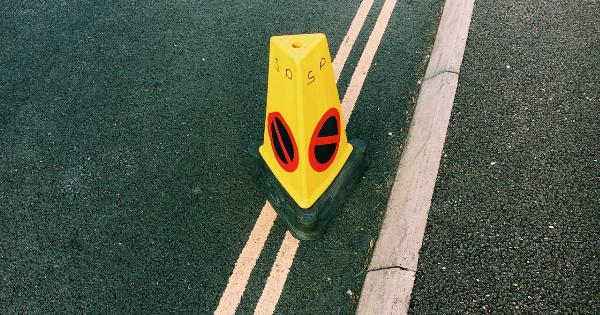Diarrhea is a common digestive disorder characterized by frequent loose or watery stools. It is often accompanied by stomach cramps, bloating, nausea, and sometimes vomiting.
While it is usually a short-lived condition, it can be quite uncomfortable and disruptive to daily life. In this article, we will discuss some effective tips and tricks to prevent diarrhea and maintain a healthy digestive system.
Eat a Balanced Diet
One of the key factors in preventing diarrhea is maintaining a healthy and balanced diet. Include a variety of fruits, vegetables, whole grains, lean proteins, and healthy fats in your meals.
Avoid excessive consumption of greasy, fried, and spicy foods as they can irritate the digestive system and trigger diarrhea. Additionally, stay hydrated by drinking plenty of water throughout the day.
Avoid Food Triggers
Identify any specific food triggers that might lead to diarrhea for you. Certain individuals are more sensitive to certain types of food, such as dairy products, gluten, or artificial sweeteners.
Keep a food diary to determine if any particular foods consistently cause digestive distress and try to eliminate or reduce their consumption.
Practice Good Hygiene
Practicing good hygiene is essential in preventing diarrheal infections, especially those caused by bacteria or viruses.
Wash your hands thoroughly with soap and water before preparing or consuming food, after using the restroom, and after coming into contact with potentially contaminated surfaces. Encourage others around you to follow proper hygiene practices as well.
Be Cautious with Water and Beverages
Contaminated water is often a major cause of diarrhea, particularly when traveling to developing countries. It is important to drink safe and clean water.
If you are unsure about the water source, it is best to consume bottled water or boil tap water before drinking. Be cautious with beverages like juices and ice cubes, as they may also be made with contaminated water.
Manage Stress Levels
Stress can have a significant impact on your digestive health and may contribute to diarrhea.
Find methods to manage and reduce stress, such as practicing mindfulness, engaging in regular physical exercise, getting enough sleep, and participating in activities that you find relaxing and enjoyable. Implementing stress management techniques can go a long way in preventing diarrhea.
Be Mindful of Medications
Some medications can cause diarrhea as a side effect. If you are taking any prescription medications, over-the-counter drugs, or supplements, consult with your healthcare provider to determine if they could be contributing to your diarrhea.
They may recommend adjusting the dosage or switching to an alternative medication if suitable.
Avoid Overconsumption of Alcohol
Excessive alcohol consumption can lead to irritation and inflammation of the stomach lining, which may result in diarrhea. Limit your alcohol intake and opt for moderation.
It is also crucial to avoid mixing alcohol with sugary or carbonated beverages, as they can worsen digestive symptoms.
Practice Proper Food Handling
When preparing or storing food, it is essential to practice proper food handling techniques to prevent bacterial contamination.
Ensure that all perishable foods are stored at the appropriate temperature and cooked thoroughly to kill any potential harmful bacteria. Avoid consuming expired or spoiled food products.
Stay Vaccinated
Some types of diarrhea, such as those caused by certain strains of bacteria or viruses, can be prevented through vaccinations.
Consult with your healthcare provider to determine if there are any specific vaccines recommended for your travel destinations or if you have any pre-existing conditions that require vaccination against diarrheal illnesses.
When to Seek Medical Attention
In most cases, diarrhea resolves on its own within a few days and does not require medical intervention.
However, if you experience severe or persistent diarrhea, accompanied by symptoms such as dehydration, high fever, bloody stools, or severe abdominal pain, it is important to seek medical attention promptly as it may be indicative of an underlying condition or infection.
Conclusion
Preventing diarrhea involves adopting healthy habits, such as maintaining a balanced diet, practicing good hygiene, managing stress levels, and being cautious with water and beverages.
By following these tips and tricks, you can significantly reduce the risk of experiencing the discomfort and inconvenience caused by diarrhea. Remember to consult with a healthcare professional if you have any concerns or if your symptoms persist.































